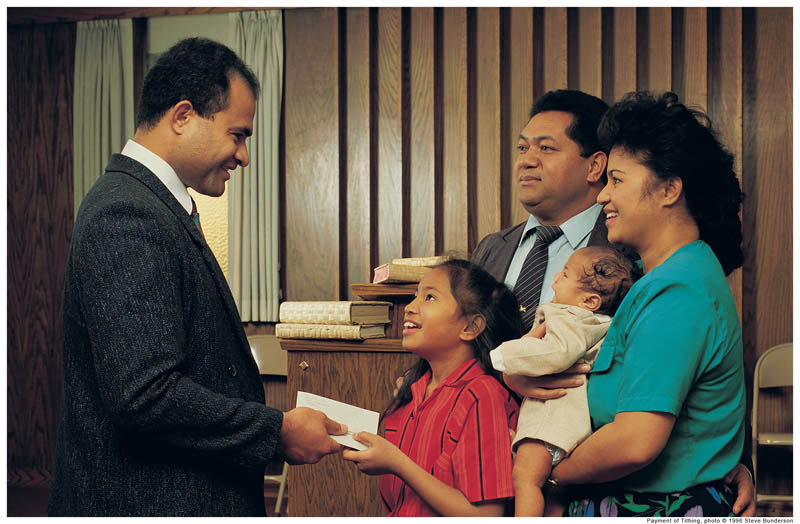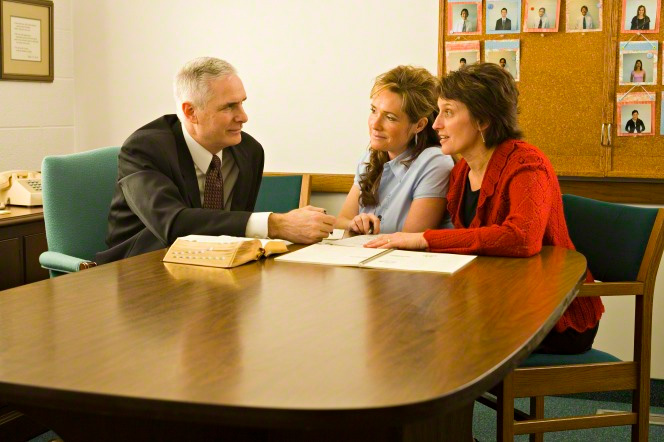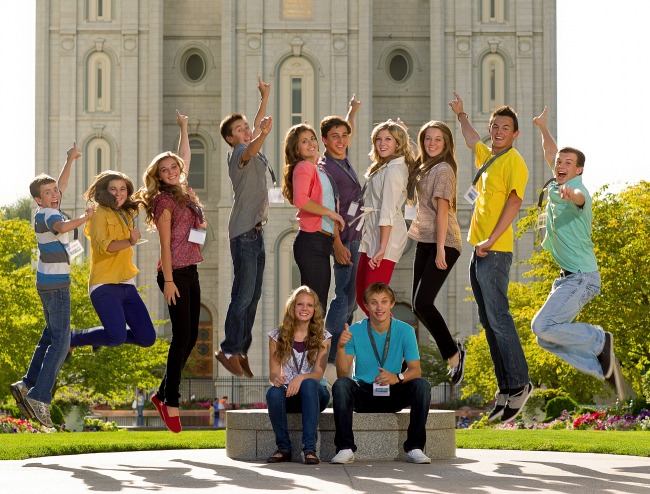A Mormon Bishop Talks about Interviewing Youth
Due to a recent petition launch by a former bishop condemning the way bishop’s interviews are currently conducted in the Church, and due to the traction his effort has received from several sources, including the Deseret News and the Salt Lake Tribune, I have written this post to share how I conduct youth interviews. My name is withheld for obvious reasons of confidentiality given my current calling.
Two relevant roles of a bishop need to be defined: A bishop has to stand in judgment of personal worthiness, and a bishop has to provide a way back for those who want to return to worthiness. In a sobering and real way, a bishop represents the Savior to the members of his ward in the carrying out of these two activities.
Who is “The Bishop”?
 Our peculiarity as a people is rarely more obvious than when we take a man who is neighbor Dan one day, with whom we would never share any intimate details of our lives, and the very next day, with the title “Bishop” in front of his name, we are told that it is now safe and necessary for us to share our greatest pains and darkest secrets with him.
Our peculiarity as a people is rarely more obvious than when we take a man who is neighbor Dan one day, with whom we would never share any intimate details of our lives, and the very next day, with the title “Bishop” in front of his name, we are told that it is now safe and necessary for us to share our greatest pains and darkest secrets with him.
There is no formal, standardized training that takes place. Bishop Dan does not go through a seminary like ministers from so many other churches do. As mentioned, Bishop Dan represents the Savior to his people in significant ways. He can also make local pronouncements for the Church.
The lack of standardization and training can and does yield inconsistent judgments and pronouncements depending on the bishop and the member.
For example, after hearing a member confess a sin, the Bishop must prayerfully decide whether or not withholding church privileges for a time, such as taking the sacrament or attending the temple, would best benefit the member in their return to full worthiness.
Interestingly, a bishop may also decide that an increased participation in these activities would yield the greatest benefit. There is no chart of sins with corresponding remedies as a reference for bishops, and because bishops are imperfect and because members with identical sins may be best benefited in different ways, member Jan may be told that she is to increase her temple attendance and member Lois may be asked to not take the sacrament or attend the temple as a remedy for the same sin.
Bishops and Members Work Together for the Best Results
 Generally, the process works astonishingly well. Most adult visits with bishops are wonderful events. Even if the bishop makes minor mistakes, these are generally overlooked by adult members.
Generally, the process works astonishingly well. Most adult visits with bishops are wonderful events. Even if the bishop makes minor mistakes, these are generally overlooked by adult members.
With youth interviews, however, the stakes are much higher and any mistake is magnified. Special care should be taken for these interviews in the form of prep work and the actual interview so that the interview is a positive and even a joyous experience for the bishop and the member. Both become participants in a wondrous, supernal experience with the Savior of the world. There have been few times that I have felt the presence of the Holy Ghost stronger than when I have heard a confession, made a judgment, and pronounced a pathway back to full spiritual restoration.
With Youth Much Should be Done Before Interviews Take Place

The prep work that will help yield the greatest experiential outcome may include the following activities.
First, do all of the heavy lifting in a fifth Sunday or other lesson with groups of youth.
If boundary conditions, definitions, steps, and pathways are discussed in a group setting, individual pressure is removed. I have also done some role playing with what it would be like to come in my office to confess a sin. I have had a youth leader come to the front of the class and act out the role of confessor.
After the role play, I tell them that I will never punish them; that my only goal is to get them right with God and that we are both participants in the miracle of one of the sweetest manifestations of the atonement of Jesus Christ.
Another pre-interview idea I got from Kurt Francom, Executive Director at LeadingLDS.org, is to have individual meetings with each of the parents to explain the process from start to finish and to get input from them on each step.
In that meeting, I would give them a copy of the presentation I use on the fifth Sunday sexual purity lesson, explain what happens in a standard temple recommend interview or birthday interview, explain what would happen if their child were to volunteer something and what action I would take if something were volunteered. I would then ask their permission to proceed as outlined.
Kurt Francom suggests asking the following questions:
- How do you understand the law of chastity and do you feel prepared to teach it to your children?
- Have you had healthy conversations with your child about sex and the law of chastity? If not, why?
- Do you feel prepared to educate your child about these sensitive topics or do you need more resources as a parent?
- If your child ever does come in to confess a transgression how would you like me to handle that as their priesthood leader?
- What would you suggest I do as their bishop so they feel safe to come talk with me?
There are a few things I would change on Kurt’s list. I would change every reference of chastity to Sexual Purity for several reasons, mostly because For The Strength of Youth speaks of it that way. I would not ask the last two bullets. I would tell them how I will go about the group teaching and individual interviews with their children then seek feedback.
I have also told the youth in the group lesson that, if they would feel more comfortable, I would give them a list of names of people that I would allow to be present during the interview and that if we can agree on one of the names, that person would be welcome to participate.
Out of the dozens of interviews I have had with worthiness interviews and confessions, I have never had a 12 to 18-year-old ask to have someone else present. In most cases, I have also found that the far more difficult part of the process is suggesting to them that they involve their parents. In many cases, I have offered to prep the parents so that parental reaction is appropriate.
Because the group lesson covers physical, behavioral and emotional boundary conditions, which when exceeded would constitute a loss of holiness that would require ecclesiastical help to overcome, when it comes time for the worthiness interview, I can ask a very generic question, like, “Are you sexually pure?”
I have changed the basic lessons for both genders to be age appropriate. The Laurel class as a group faces entirely different sexual realities as does the Beehive class. Priests are dealing with different social and hormonal realities than Deacons. Priests also want to know what my and the Stake President’s requirements are for the length of time avoiding sin before mission papers can be submitted.
In my experience, once process, understanding, and a strong relationship are established, there is little reluctance to be forthcoming about sinful behavior.
With all of my members who come in to make themselves right with God and the Church, my goal is to have them leave with more hope than they had when they arrived.


